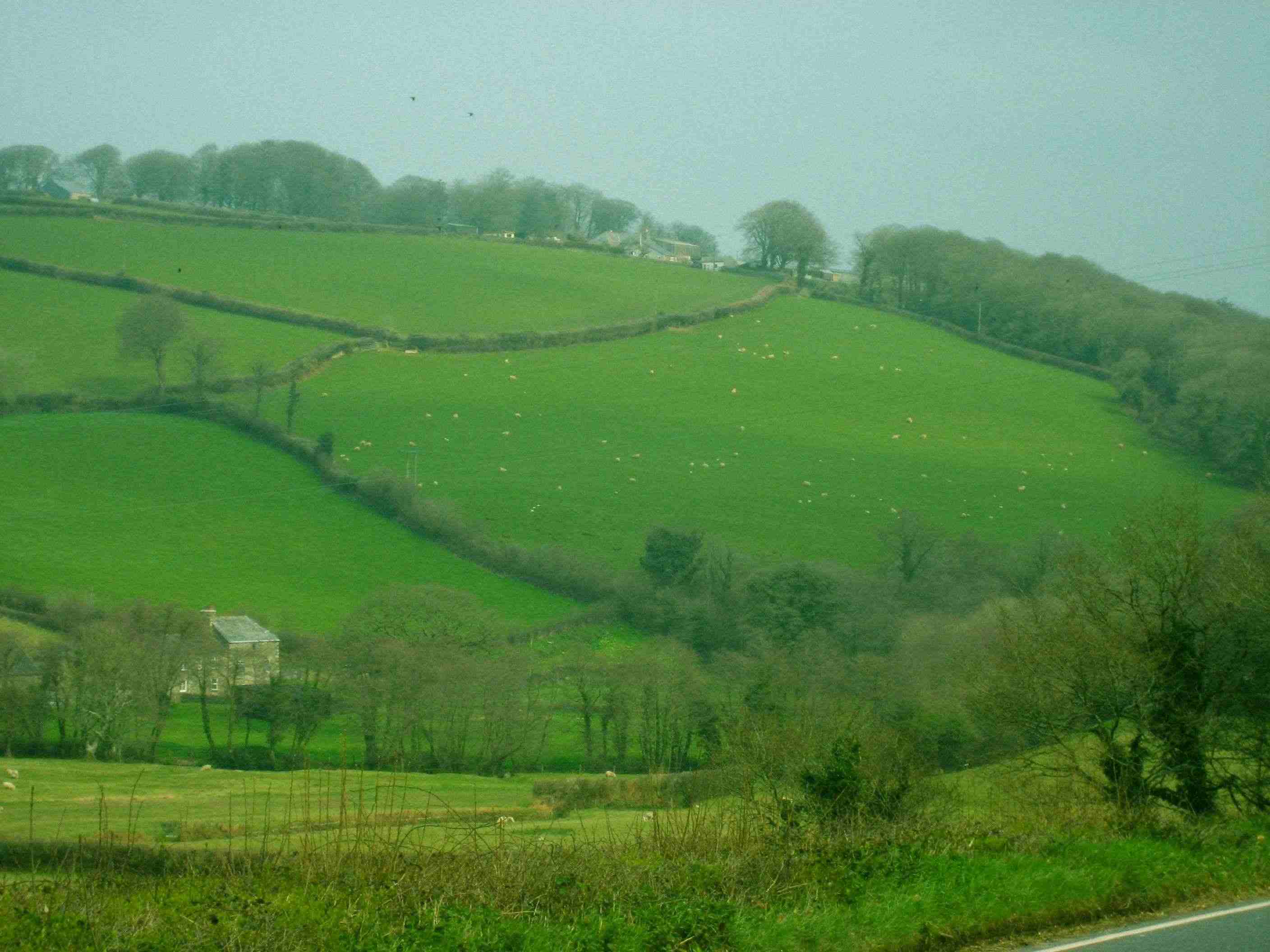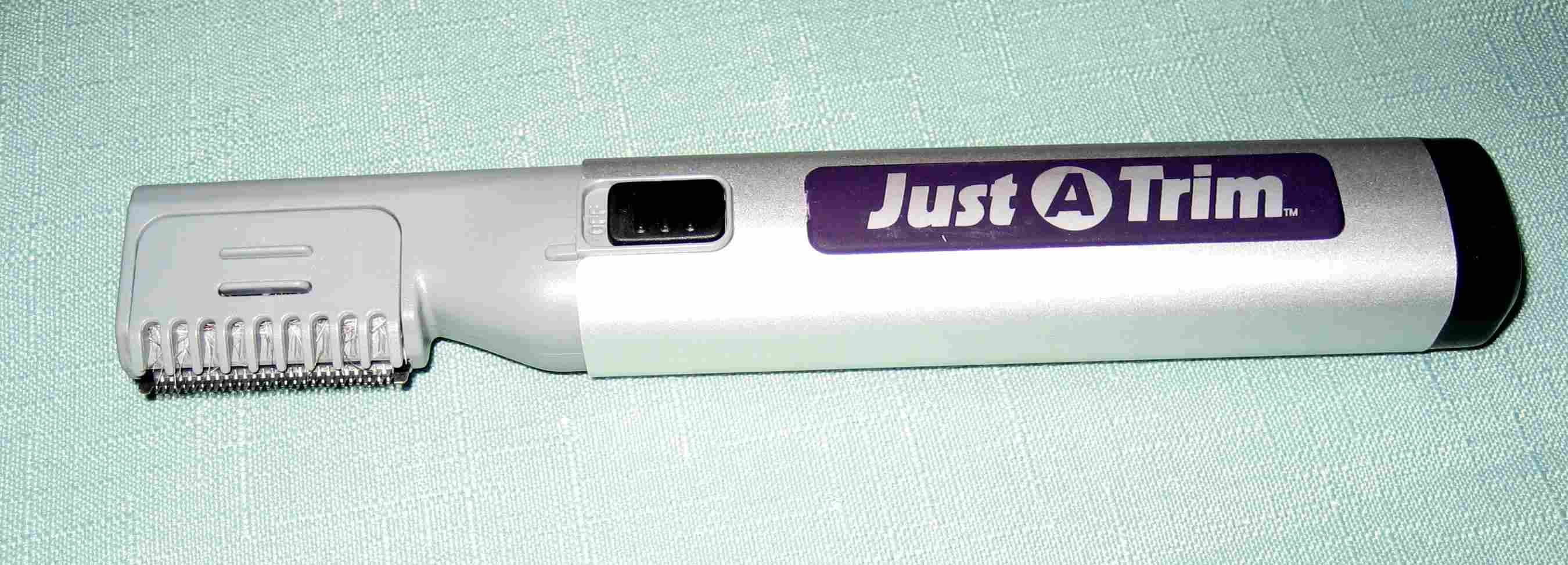 |
|
| Days N1 - N14 English West Country | |
|
Northbound Home Start hiking here English West Country English Midlands North of England Southern Scotland Central Scotland Scottish Highlands Southbound Home |
Sunday, March 25, 2007
Time of departure: 9.15 am Time of arrival: 5.00 pm Place departed: West Taphouse, Cornwall Place arrived: Callington, Cornwall Miles: 16.9 Cum miles: 88.4 Percent complete: 9.5  Coachmakers
Arms * Coachmakers
Arms *Cost (for bed only): £32.50 ($65) |
| Overview of both
hikes Excerpts Statistics What others say Acknowledgments Contact me Copyright Links |
|
 |
|
 |
|
 |
|
| Top: PDA (7 oz),
and 8 oz keyboard which I mailed away to save weight Middle: Radio and LED flashlight (about 3 oz) Just above: Hair and beard trimmer (also about 3 oz plus batteries), which I also mailed away. After that, I used a razor blade to trim my hair and beard |
|
| The switch to daylight
saving time occurred last night, which I welcomed because it would give
me an extra hour of daylight to find accommodation each
evening. This was to prove handy as I dragged my weary self
around Callington to find a bed and ended up in a dingy pub that
nevertheless provided a bath. The day had started in West Taphouse with a 30-minute stint of clothes drying by use of a hair dryer, given that the room heating at that B&B had never quite got going. A nice warm radiator is a clothes-drying miracle - as long as it is indeed warm. A useful precursor to the radiator is to roll the squeezed-out wet clothes in a towel - but I found the new towels to be as damp as the clothes. Too tired to complain the previous evening, it was hardly worth bothering in the morning. And those full English breakfasts can cure a thousand ills. In fact, the full English breakfast brought another blessing in the form of a young English woman, possibly 20-years old, as alluring as any 63-year-old male away from home could imagine. In my over-imaginative reckoning, she was Miss Joan Hunter Dunn in Betjeman’s A Subaltern’s Love Song (click to read the poem). Ms. Hunter Dunn was here on a few days' vacation from her BBC job to surf in the freezing winter waters of Cornwall, which apparently a wetsuit made comfortable. Sitting at the next table at breakfast, she told me that the surf hadn’t been up, and wasn’t going to be up today either. In due course, the discussion gravitated to the charming, nearby town of Lostwithiel, on the River Fowey some seven miles from the sea. Now I happened to know from my reading that Lostwithiel was once at the heart of Cornwall’s tin mining industry, and that the Fowey was once of sufficient width and depth to allow it to be reached by big ships which carried the tin to market. In time, rubble from the tin mines had silted up the river, and thus the city lost its trading pre-eminence a full six hundred years ago. But, as our breakfast conversation turned to the fouling of the river, my surfer friend turned to me, saying: “I expect that’s caused by your global warming, isn’t it?” (To think that America had caused the Fowey to silt up even before Christopher Columbus was born!) When I set out from West Taphouse, I was pleased to find a relatively flat route to Middle Taphouse, and then on to East Taphouse. Thereafter, the hills and dales remained somewhat gentle until a steep ascent into Liskeard (pronounced as if it had no "e"), where at least I had the distractions of a town to enjoy. I paused to buy some cheese and ginger ale. Resting on a grassy bank, I put my hands behind me on the "grass" to support myself - and on to a bed of nettles! I can faithfully report from this and future encounters that a nettle sting will be painful for about three hours. It was lambing time, and the green hillsides were dotted with parent sheep and their offspring, who frequently butted their mouths on their mothers' underbellies in search of a teat. There is something beautiful about sheep and lambs in a really green meadow. The white animals contrast with the green grass, the one setting off the other, the sheep giving life to the meadow and the meadow giving grace to the sheep. Being fenced to contain the sheep, the fences, or more likely here the hedges or stone walls, frame the whole scene. In hilly country, the fields will often reach up and create a close-in horizon. In England, there'll likely be low-hanging clouds above. The lambs speak to the circle of life. One subconsciously understands that the sheep provide food and their wool provides clothing. A stone cottage with a wisp of smoke from the fire is by no means an unusual accompaniment, and it completes the scene to perfection. And to think you can see this half a dozen times a day on a hike in the West Country. Reaching St. Ive in the early afternoon, some twelve miles from my start, I felt in good shape to continue on to Callington, four miles further. At first, I could see a level road for at least a mile, and seeing as St. Ive was quite elevated, I hoped for a nice descent to Callington. But it was not to be. After crossing a delightful stone bridge (one lane only) over the River Lynher, a bruiser of a two-mile ascent still lay ahead. The effort was sweetened by a chat with a charming young lady who was removing trash from the roadside for a distance of a mile or so. I complimented her on her good deed, and wondered if the courts had had anything to do with it. As I trudged up the next hill, a commotion of crows sounded in the canopy of trees, and a small voice inside me connected the birds to my exhausted condition, and I asked myself, "What if they are vultures?" No sooner said than I saw a dead deer, probably hit by a car, and it reminded me of something in my childhood. The childhood recollection was of my classmates when we were about eight-years old. One of us, whom I'll call Martin, known for a lewd act or two which we won't describe, had skinned a mole in the morning, and pronounced that we could all witness its soul going to heaven at 6 pm behind the woodshed. Our attention was thus easily commanded, but at 6 pm, we saw nothing more unusual than the arrival of Mr. Sandy, who wondered what half a dozen eight-year olds were doing behind the woodshed. But, as Martin explained glibly to us after, we shouldn't expect the ascent of the soul to be humanly visible seeing as it was God's doing. On my hike now, 55-years later, I wondered what had become of Martin. Given his success at getting us to watch the ascent of the soul and then explain away the lack of visible evidence, on top of the lewd behavior, I could easily envisage Martin starting a pyramid scheme to sell snake oil. That would be followed by a successful plea-bargain to keep his prison sentence short. At that point he undoubtedly made a career switch to his true vocation - television evangelist. The time passed the more quickly with this fantasy as I made the last bruising climb into Callington. And the good Lord made that even easier by pointing out that the time to complain was when there were no more hills in one's future. It took some time to find accommodation in the Coachmakers Arms, expensive by B&B standards, and not that good. But I enjoyed a good lamb and apricot hotpot right in the same pub, washed down with a pint of Worthington bitter. |
|
| Day N5 © 2007 and 2008 Daryl May Day N7 | |